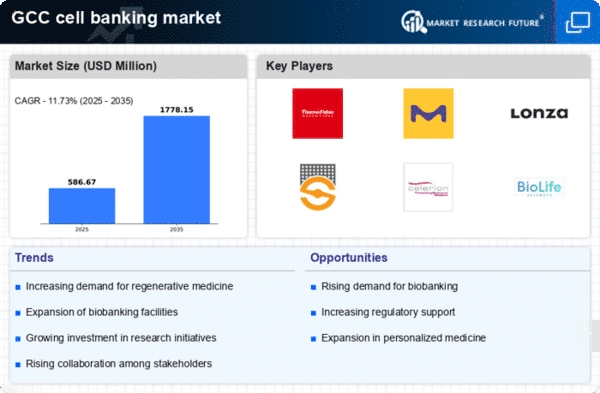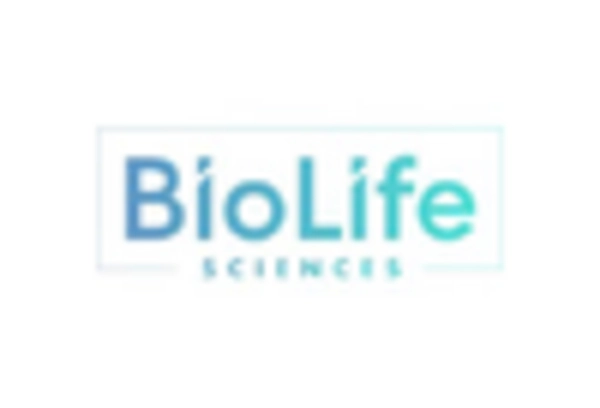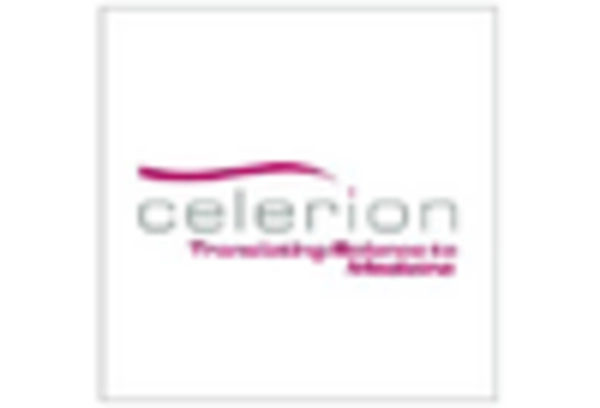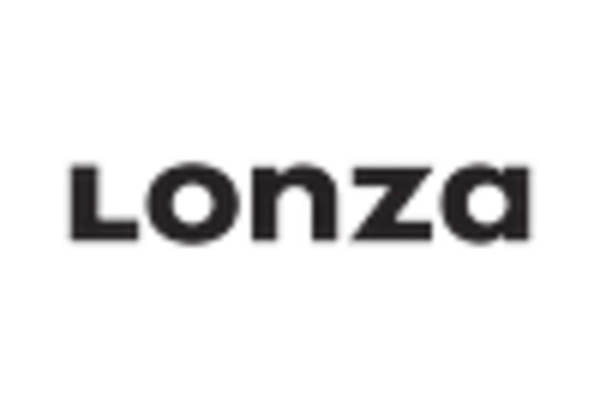Regulatory Support for Biobanking
The regulatory landscape in the GCC is evolving to support the growth of the cell banking-outsourcing market. Governments are increasingly recognizing the importance of biobanking in advancing healthcare and research. Recent initiatives aim to establish clear guidelines and frameworks for biobanking practices, which could enhance the credibility and reliability of outsourced services. For instance, the introduction of standardized protocols may lead to improved quality assurance in sample management. This regulatory support is expected to foster trust among stakeholders, encouraging more organizations to engage in outsourcing their cell banking needs, thus propelling market growth.
Rising Prevalence of Chronic Diseases
The cell banking-outsourcing market is likely to benefit from the rising prevalence of chronic diseases in the GCC region. As healthcare providers focus on developing targeted therapies for conditions such as diabetes and cardiovascular diseases, the demand for high-quality biological samples is increasing. In 2025, it is estimated that chronic diseases will account for over 70% of healthcare expenditures in the region. This trend necessitates the establishment of efficient cell banking systems that can support research and development efforts. Consequently, outsourcing these functions allows healthcare organizations to access specialized expertise and resources, thereby enhancing their research capabilities.
Advancements in Cryopreservation Techniques
The cell banking-outsourcing market is being positively influenced by advancements in cryopreservation techniques. Innovations in freezing and storage methods are enhancing the viability and integrity of biological samples, which is crucial for research and therapeutic applications. In the GCC, the adoption of these advanced techniques is likely to improve the quality of outsourced cell banking services. As a result, organizations are more inclined to outsource their cell banking needs to ensure optimal sample preservation. This trend not only boosts the reliability of research outcomes but also positions the cell banking-outsourcing market for substantial growth in the coming years.
Increasing Investment in Biopharmaceuticals
The cell banking market is experiencing a surge in investment from biopharmaceutical companies in the GCC region. This trend is driven by the growing need for advanced therapies and personalized medicine, which require robust cell banking solutions. In 2025, the biopharmaceutical sector in the GCC is projected to reach approximately $10 billion, indicating a strong demand for outsourcing services that can efficiently manage cell lines and biological samples. As companies seek to streamline their operations and reduce costs, outsourcing cell banking functions becomes an attractive option. This influx of capital is likely to enhance the capabilities of service providers, thereby expanding the overall market for cell banking outsourcing.
Growing Collaboration Between Research Institutions and Industry
The cell banking-outsourcing market is witnessing an increase in collaborations between research institutions and the biopharmaceutical industry in the GCC. These partnerships are often aimed at accelerating the development of innovative therapies and improving patient outcomes. By outsourcing cell banking functions, research institutions can leverage the expertise of specialized service providers, allowing them to focus on their core competencies. This collaborative approach not only enhances the efficiency of research projects but also contributes to the overall growth of the cell banking-outsourcing market. As more institutions recognize the benefits of such partnerships, the demand for outsourcing services is expected to rise.
















